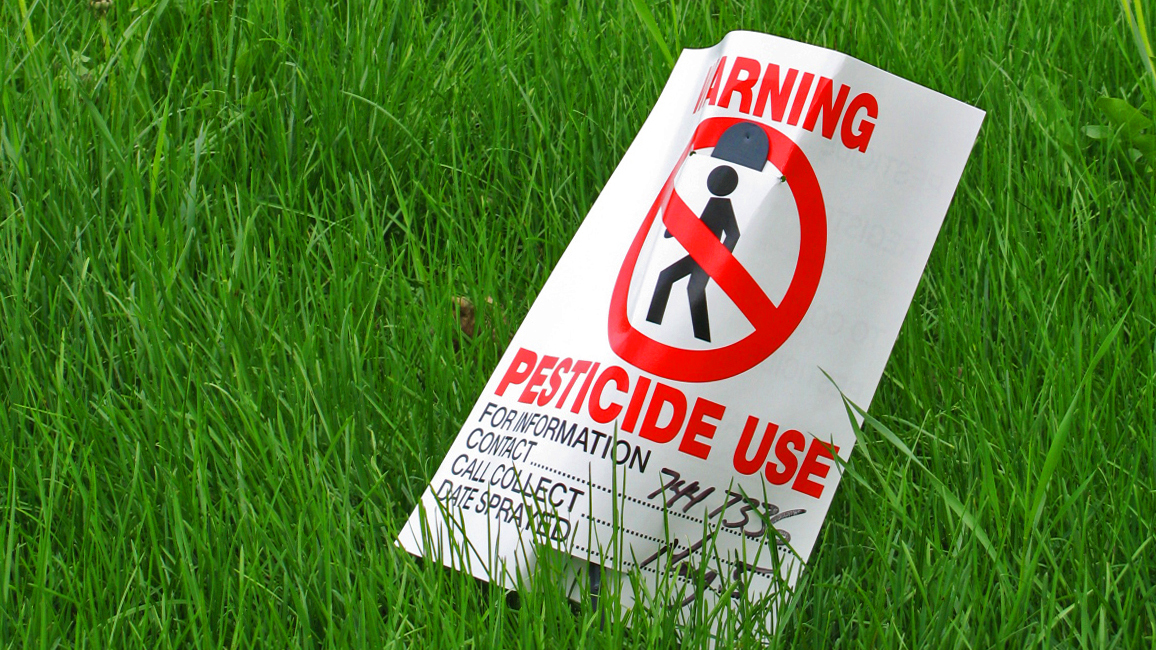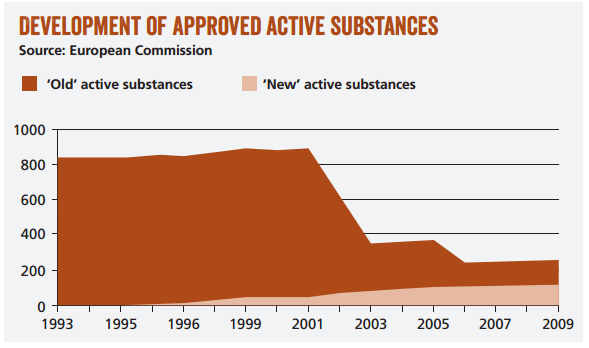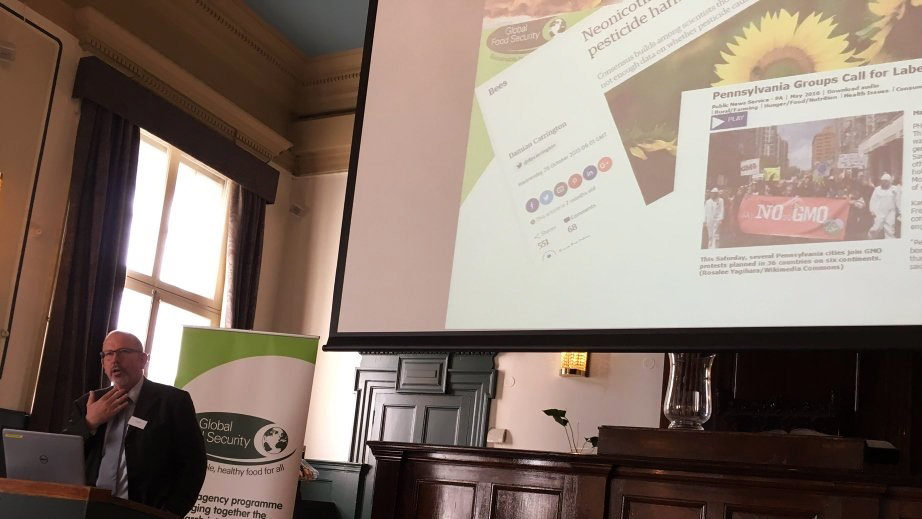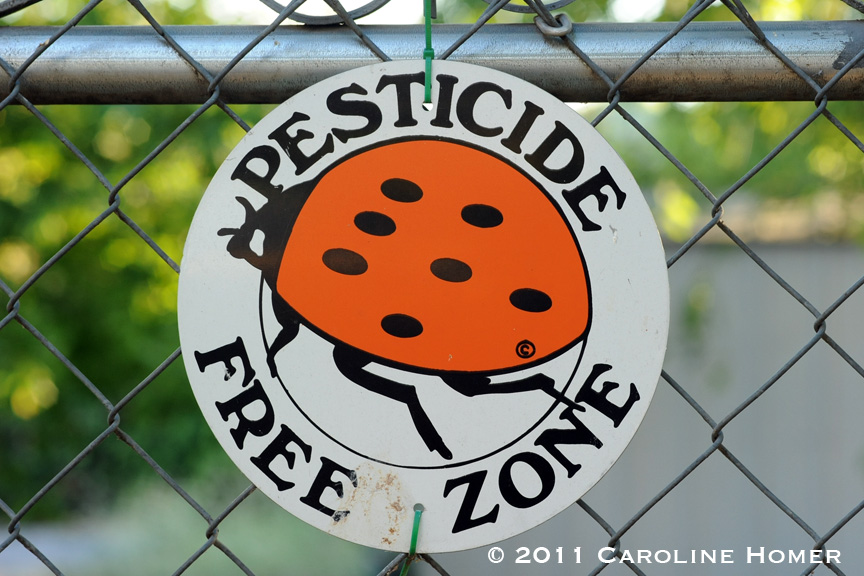What technologies could sustainably replace pesticides, without compromising on yield or quality? The Global Food Security (GFS) programme’s David O’Gorman reviews a recent GFS workshop on the topic.

What would happen if we could no longer use pesticides? Well, there would be significant yield losses, food price increases, greater food insecurity and potentially political unrest and instability. There may well be reduced ecological impacts, but with loss of yield would come expansion of agricultural land, with release of GHGs and loss of biodiversity.
We are heavily reliant on pesticides to maximise crop yields and put food on our tables. Even with the use of pesticides, a third of food (PDF) produced for human consumption is lost or wasted – what might the figure be with a dramatic increase in pre-harvest losses following reduced pesticide use?
To explore this further through the windows of research and policy, the Global Food Security (GFS) programme held a workshop on 23 May 2016 in London. It brought together academics, policymakers, industry and other stakeholders to discuss the possibility of a ‘post-pesticide’ world, and to examine the future priorities for research in this area.

Chemical world
‘Pesticides’ is a colloquial term that encompasses many types of plant protection product (PPP), which are used to control pests, weeds and diseases. There are many different types of plant protection products, including insecticides, fungicides, herbicides, molluscicides and plant growth regulators.
Worldwide, more than 70,000 different pest species damage agricultural crops. To alleviate this, almost 18,000 tonnes of pesticides were used in the UK in 2014. But many pests are becoming resistant to pesticides, and there is increasing regulation in this area. There are also consumer concerns around contaminants in food from pesticides.

One of the challenges with replacing pesticides is that they really do work. In developing countries, for example, pesticide use in Kenya means a four-fold income increase (PDF) for small-scale passion fruit farmers and extra income for avocado farmers. An overlooked benefit of pesticides is that growers can rely on them as and when they are needed, providing (almost) instant success when applied, making them a desirable ally in the fight against pests, weeds and disease.
However, the consequences of pesticide use have become more apparent since the introduction of modern compounds, such as DDT accumulating in the environment, followed by the organophosphates (derived from WW2 nerve agents), the pyrethroids (derived from chrysanthemums) and now the neonicotinoids, which have been associated with declines in bee populations and are currently subject to a Europe-wide moratorium.
There is also polarised opinion over glyphosate, a commonly used herbicide, and its effect on pollinators and the emergence of herbicide resistance.
New world towers
EU Directive (91/414) was brought into force to curb negative effects of pesticides by implementing maximum acceptable concentrations for compounds in specific environments, and put limitations on pesticide application routines and techniques. Research continues to identify new classes of active chemical compounds, however pesticides are amongst the most heavily regulated products in Europe and it currently takes about ten years, costing industry more than £150M, to bring an active ingredient to market. Hence the drive for innovative ideas and technologies to ensure that yields can be maintained at lower environmental costs.

A strong theme at the workshop was integrated pest management (IPM) strategies for pest control, which comprises several different practices to manage pest populations to a level where they do not cause economic damage. This strategy uses natural enemies of pests, trap-cropping and biopesticides. Biopesticides include microbial (bacteria, fungi and viruses), macrobial, biochemical, semiochemical and natural products.
There are, however, issues around the complexity of IPM, and the scalability of biopesticides, from greenhouses and controlled environments, to their usage in fields and large-scale agricultural practice. In large-scale operations, biologicals and IPM are not as reliable as their chemical counterparts, and further engagement is needed with farmers and growers reap the maximum potential benefits.
In addition, IPM does not lend itself well to commercialisation in terms of intellectual property (IP) – how do you patent a methodology such as push-pull agriculture? – so there is less incentive for crop protection companies to invest in this technology. Consequently, IPM strategies are not widespread, especially when coupled with the time and resource needed to implement these.
There’s no other way
Workshop attendees agreed that a whole system perspective is needed. This is because alternatives to pesticides can have unintended consequences. For example, other methods of weed control, such as ploughing, reduce the soil’s ability to store carbon, increasing emissions and depleting the biodiversity of micro-organisms in the soil.

Recent advances in genome engineering could offer game-changing potential for agriculture; however public perceptions vary around the use of new technologies. CRISPR is a gene editing tool that has the potential to edit genomes with unprecedented precision, in an efficient and flexible way. Commercial cultivation of virus-resistance papaya and field testing of virus-resistant plum for example, have shown that CRISPR, and other RNAi technologies can deliver effective resistance.
But although the science is unquestionably brilliant, increased public confidence in novel technologies will be needed for wider uptake. And many at the workshop thought that the potential for agri-engineering solutions is (almost) limitless, and could drastically reduce the demand for pesticides.
The National Centre for Precision Farming at Harper Adams University is developing laser weeders, which can accurately detect and kill weeds using robotics. There are also smartphone-enabled apps for pest and disease management such as CropProtect that amalgamates data collection, technology and knowledge exchange for more efficient farm management. (For more see this video feature from GFS partners BBSRC about the Farms of the Future, as well as the GFS blog Game-changing technologies in agriculture.)
Whilst the likelihood of a post-pesticide world in the next few years is unlikely, there are some emerging technologies, such as drones, and existing methods that could be improved, like biological control.
Workshop attendees agreed that more research will be needed around productivity and scalability, as well as greater engagement with farmers and the general public. There was also agreement that a systems-based, multidisciplinary approach is fundamental in understanding the interconnected risks to the agri-food system, and is necessary to move us towards a reduction in pesticide use. So, although a pesticide-free world may seem far-fetched, research and innovation around alternative strategies could make this a reality.
About David O’Gorman
David O’Gorman studied Natural Sciences at the Open University, and previously worked for the mathematical sciences theme in the Engineering and Physical Sciences Research Council. He is currently Strategy and Policy Officer for the Global Food Security programme.



It would have been good to see, rather than a lament that “IPM does not lend itself well to commercialisation” on intellectual property grounds, a much stronger case for much increased publicly funded research on sustainable pest control methods. There seems to be a growing acceptance of the need to move away from input-intensive agricultural systems towards solutions that yield fewer commercially appropriable benefits but sadly little sign yet of a rising flow of fiscal resources into the needed research and adaptation.
Andrew MacMillan
Thanks for your comment Andrew. I agree that sustainable agriculture is growing in importance, which naturally leads to alternatives to pesticides being sought. Your thoughts on more funding in this area was echoed by workshop attendees, along with a need for more multidisciplinary, systems-based research. GFS has recently launched our second ‘Resilience of the UK food system in a wider context’ call,and sustainable pest control methods could potentially fit the call’s thematic priorities.
The challenge of reducing dependency on pesticides cannot be underestimated. Crops provide an ideal environment for adapted pests, weeds and diseases to thrive in. Innovation in crop protection is urgently needed as UK farmers struggle to establish crops due to issues such as the cabbage stem flea beetle in oilseed rape and blackgrass and septoria in wheat. It is difficult for farmers to make a living when their crops are destroyed by pests, weeds and diseases and the pace at which pesticides have been restricted or lost to resistance is much faster than the pace at which new solutions are provided. As mentioned, the consensus at the workshop was that a systems-based, multidisciplinary approach is needed. There is an opportunity to develop new user-friendly solutions for farmers but this requires not only new thinking but new investment. Co-design of solutions with farmers might improve adoption if a funding mechanism for this type of research could be found. There is a risk that UK farmers may receive less farming subsidy after Brexit which makes it all the more urgent to provide them with cost-effective solutions for managing pests, weeds and diseases. More efficient crop production would lower the environmental footprint of farming in terms of land, water and fossil fuel resources used. We cannot afford crop losses to pests!
Yes, thanks for your post Toby, you mention a lot of important issues that need considering in both the short-term and long-term. You are right, this is not a challenge to be underestimated – septoria tritici blotch has contributed to reported losses of about 50% in wheat varieties in the UK, which is alarming, and herbicide resistance of black-grass has been reported in 35 counties in England. GFS will continue to engage with stakeholders to translate knowledge, and work together with partners to ensure a more resilient and sustainable food system.
I read your report of the workshop with interest. I was surprised not to see mention of the impact that farmers’ reliance on pesticides and other expensive technology has on their bottom line. I’m no dyed-in-in-the-wool organic enthusiast, but doesn’t the experience of UK farming in the last 30 years show that once farmers are on the high input treadmill it’s very difficult to step off? For this reason, if not many others, agriculture needs to retain a mixed bag of tools. The problem seems to be that reliance on pesticides compromises other lower input approaches (such as the impact of fungicides on soil biology). These are critical issues for farmers in less developed parts of the world, and for the people they are feeding. I agree totally with the workshop conclusion that an integrated systems approach to crop production is needed. This needs to look at the economic relationships between farmers and the businesses supplying them.
I suggest we’re all also going to have to make changes in our diets. If we pull away from eating as much meat as most of the “West” does, we’ll hugely cut the need for as many grains as we reduce the number of meat animals.
Reduce grain required, cuts soil losses, reduces need for chemicals, people healthier, NHS “saved”, etc.
We consumers have to redux consumption and help ourselves and the planet.
Less arable crops = more grassland, more (better) grass-reared meat etc
So, we can’t plan a system on how we’ve both produced or consumed. Everything has changed and we mustn’t hide from accepting that.
Robert, Oliver, thanks for commenting on the blog post and I’m glad you found it interesting. I will be writing a full workshop report in due course, which should explore the challenges of reducing pesticide use, and the research gaps and future priorities for research, expanding a bit more on what has been mentioned in the blog.
Robert, I agree, it is certainly hard to ‘break the cycle’ when we have become accustomed to pesticides for high yields and high quality food. Oliver, you are right that the world is changing – sustainable intensification is vital for food security, but we need to also recognise that some may argue profit margins are being squeezed and unless there are tangible benefits to adopting alternatives, they will stick to their pesticides. Our Public Panel ran various projects on consumer behaviour around food topics, including sustainable intensification and trade-offs in the food system, which you may find interesting.
Sustainable intensification. Is this when our food producing animals live in sheds 24/7 when farmers spread muck on land in one go which leaves insects without food and birds without insects over the crucial breeding season. What are you thinking. Your public panel your anonymous consumer is not the people of this country who want high welfare food. LEAF have researched well what people in this country want and how farmers can engage with those people. We also have initiated the Campaign For Pasture Fed Livestock. Where cattle and other stock are fed naturally on pasture. Good for welfare, low stocking rates, plenty of manure for wild insects birds and small mammals. This leads to good quality food produced locally for local people. All these measures reduce veterinary medicine crutches. Intensification as its name suggests creates a boiler of disease and how can that be sustainable except for the interest of the global pharmaceutical industry I have no idea. Discuss.
Sustainable intensification. Sounds like a subtle addition to the ecomodernist manifesto in the guise of a valid question.
So how would we cope? Very well thank you. Our high-diversity approach to IPM works for us. Yes it is a high labour input. But there are no pesticide inputs. And yes the produce is not blemish free nor are the apples the preferred shade of red. But our per annum yields are higher on a per hectare basis.
So how would the commercial grower cope? On the margins they have to work with, not very well at all methinks.
And is that not where the real problem lies? An economic system that drives producer prices down to unsustainable levels so that they are forced on the downward spiralling of cost cutting and/or greater efficiency methods? Your solution of GE is akin to the square peg in the round hole of sustainable farming – a poor fit.